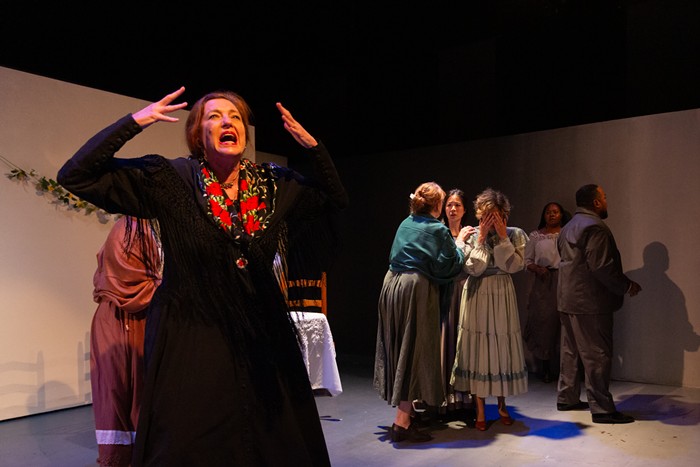John Guare's Six Degrees of Separation explores the race, class, and cultural tensions implicit in the fact that we're all much more dependent on our little bubbles of isolation than we like to think we are. When Paul, a young black man, bursts into the lives of a rich white couple, he claims to know their children, and to be the son of actor Sidney Poitier—rendering him safe and non-threatening. They take him in for the night, celebrating their own charity and goodwill. It's shortly revealed, however, that the young man is gay, didn't go to school with their children, and has been hustling members of the upper class by trading sex for secrets.
This play has been a staple of high school and college theater programs since its first production nearly 20 years ago. And for good reasons: Guare created solid, meaty main characters; the large cast means lots of opportunity; and the one black character offers the chance to highlight the one black kid in the theater program.
Profile Theatre's production of Six Degrees is largely unremarkable, but it's an interesting show for Portland because the circumstances of its production mirror the same tensions the play exposes and highlights. Dave Bodin and Karla Mason put forth strong performances as Flan and Ouisa Kittredge, members of the upper class tenuously hanging on to their social status and convenient class assumptions. They are well known to the Portland theater community, and comfortable on the Profile stage. Dennis Mosley, an import from the Seattle area, gives a serviceable performance as Paul, but he doesn't fully connect with either the audience or the other actors—weakening the play's potential impact.
It's a tricky proposition to put on a play that hinges on the performance of a black actor in a community in which there are so few. What do you do if there isn't a local actor who can carry the role? Do you settle for a weaker performance? Do you recruit from outside the community? They're interesting questions, the kind we need to ask ourselves and others on a regular basis in order to stay aware of our own prejudices and limitations. The production itself may be run of the mill, but the social questions it raises are worth the price of admission.


















